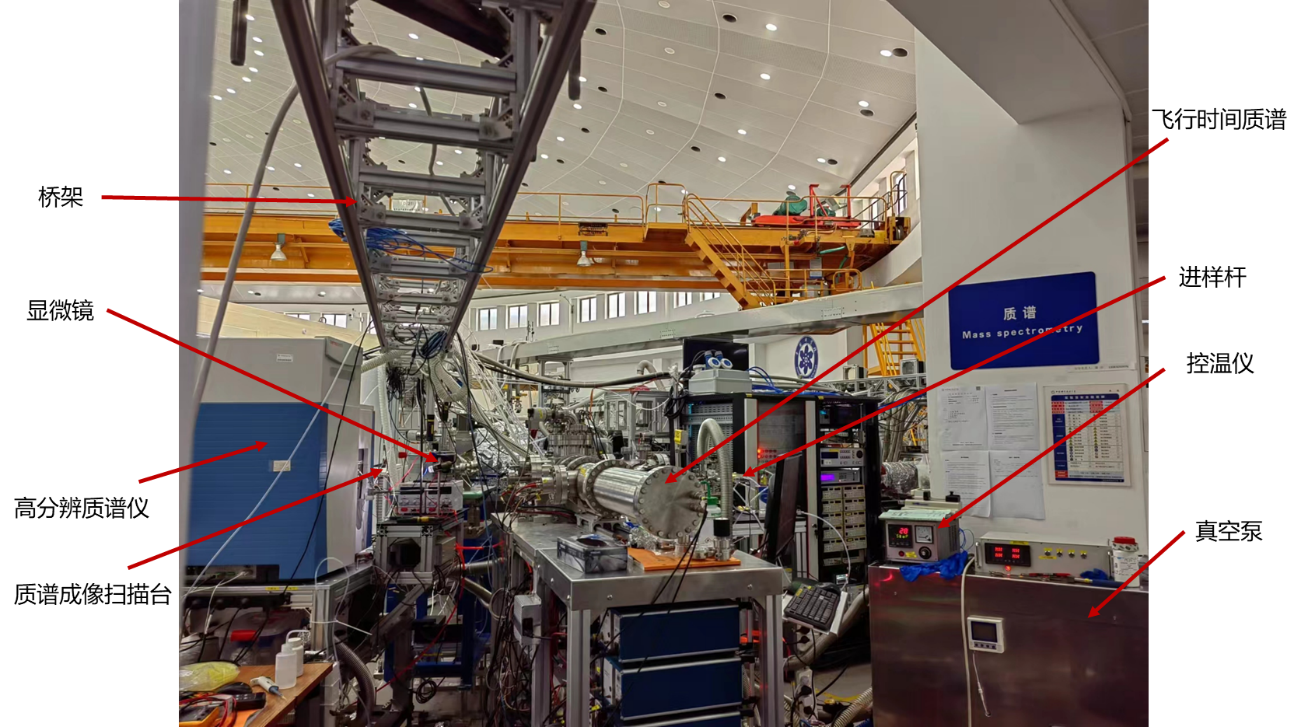Experimental End-station
Mass Spectrometry Endstation
The endstation is a mass spectrometry station based on photoionization. Its core function is to detect the mass and structural information of molecules, including multiple sets of self-developed high-resolution reflective time-of-flight mass spectrometers and two commercial high-resolution mass spectrometers. For catalysis, the experimental station is equipped with in-situ thermal catalytic and photocatalytic reactors, where the thermal catalytic reaction temperature ranges from 25-900 ℃ and the reaction pressure is adjustable from 2Torr-10 atm. For imaging, the experimental station is equipped with a microdroplet or laser desorption device, and the spatial resolution is adjustable from 4-200μm.
The experimental station has a variety of auxiliary equipment. Users can use a tablet press to granulate the catalyst and a tubular furnace to reduce and calcine the catalyst for pretreatment. In addition, biological imaging users can use a slicer to make slices, an imprinting device to transfer metabolites to plant leaf tissues, and a matrix sprayer for pretreatment.

Back

